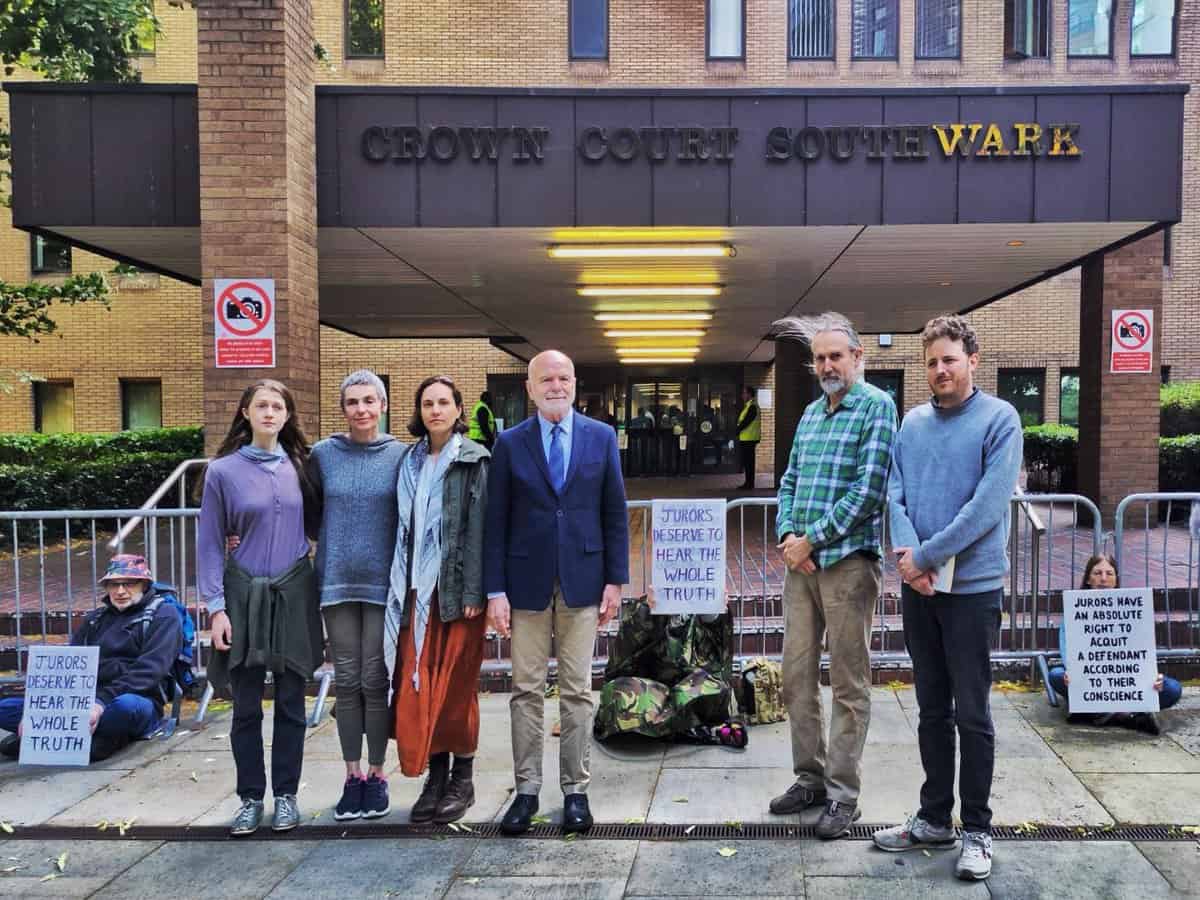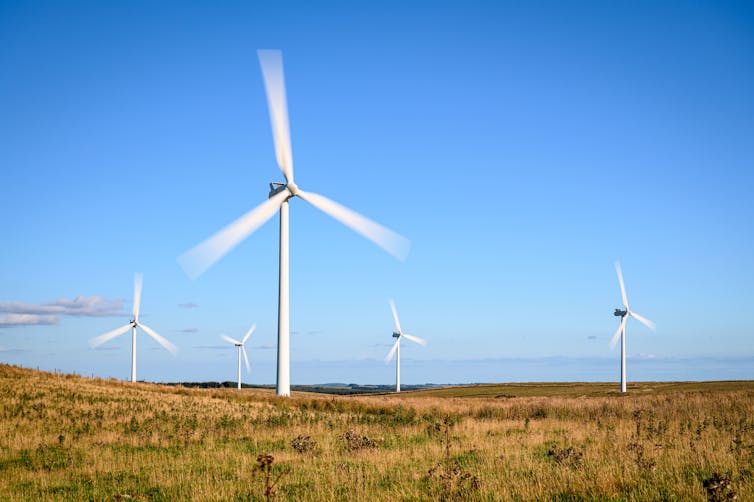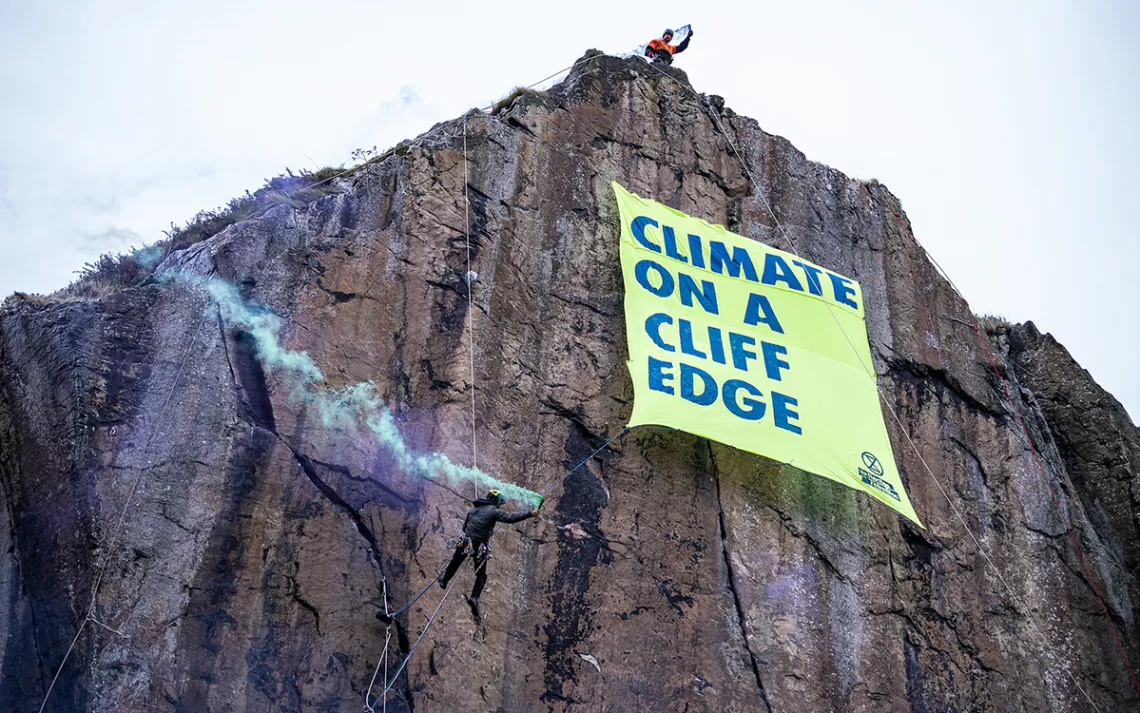Harris Campaign Says ‘Oil Barons Are Salivating’ Over Second Trump Term
Original article by JULIA CONLEY republished from Common Dreams under Creative Commons (CC BY-NC-ND 3.0).

“Trump’s promises to Big Oil would sacrifice good-paying jobs that are driving an American energy and manufacturing boom,” said the campaign.
U.S. Vice President Kamala Harris on Wednesday seized on Republican presidential nominee Donald Trump’s close ties to oil executives, taking aim at the promises Trump has directly made to billionaires who have contributed nearly $26 million to his campaign.
Responding to a report from The Wall Street Journal about the record-breaking donations Trump has received from oil magnates for his 2024 campaign as he’s pledged to help them “make an absolute fortune” by continuing to drill for planet-heating fossil fuels, Harris’ newly launched presidential campaign put it bluntly.
“Oil barons are salivating because climate denier Donald Trump promised to do their bidding while asking them to bankroll his run for the presidency,” said Joseph Costello, a spokesperson for the campaign.
The spokesperson noted that Trump has offered oil billionaires the chance to all but control his energy policy should he win a second term, telling them directly at a dinner in May that he would dismantle the oil and gas regulations introduced by Harris and President Joe Biden if the industry raised $1 billion for his campaign.
The Democratic vice president launched her campaign this week after Biden, who had faced pressure to step aside due to his age and health, endorsed her.
“These Big Oil donations solicited by Trump are being investigated as a ‘blatant quid pro quo’ by Senate investigators,” noted Harris in an email to supporters.
In addition, said Costello, “Trump’s promises to Big Oil would sacrifice good-paying jobs that are driving an American energy and manufacturing boom, and instead give billion-dollar handouts to corporations at the expense of working families and a healthy future for our children.”
“These Big Oil donations solicited by Trump are being investigated as a ‘blatant quid pro quo’ by Senate investigators.”
As the U.S. Energy and Employment Report found in 2022, under the Biden administration, renewable energy jobs have grown faster than the overall U.S. economy, paying higher than average wages, and have made up for rising unemployment in the fossil fuel industry.
“Under the Biden-Harris administration, America is more energy independent than ever,” said Costello. “Vice President Harris cast the tie-breaking vote on the Inflation Reduction Act, creating hundreds of thousands of good paying energy jobs and making the biggest climate investment in world history. But Trump promises to dismantle all this progress and sell out America’s future for his own personal gain.”
The vice president condemned the “ready-made executive order” oil lobbyists have already begun drafting for Trump in order to secure “tax handouts, increase costs on Americans, and pollute our environment,” a day after four national climate groups announced their endorsement of Harris.
The League of Conservation Voters Action Fund, the Natural Resources Defense Council (NRDC) Action Fund, the Sierra Club, and Clean Energy for America Action expressed confidence that if she wins the presidency in November, Harris will “raise climate ambition to make sure we confront the climate crisis in a way that makes the country more inclusive, more economically competitive, and more energy secure.”
The Wall Street Journal‘s reporting confirms that “the oil barons have their candidate” in Trump, said Matt Compton, chief of staff for Climate Power. “Thank God those of us who care about a clean energy future have Kamala Harris.”
Original article by JULIA CONLEY republished from Common Dreams under Creative Commons (CC BY-NC-ND 3.0).








